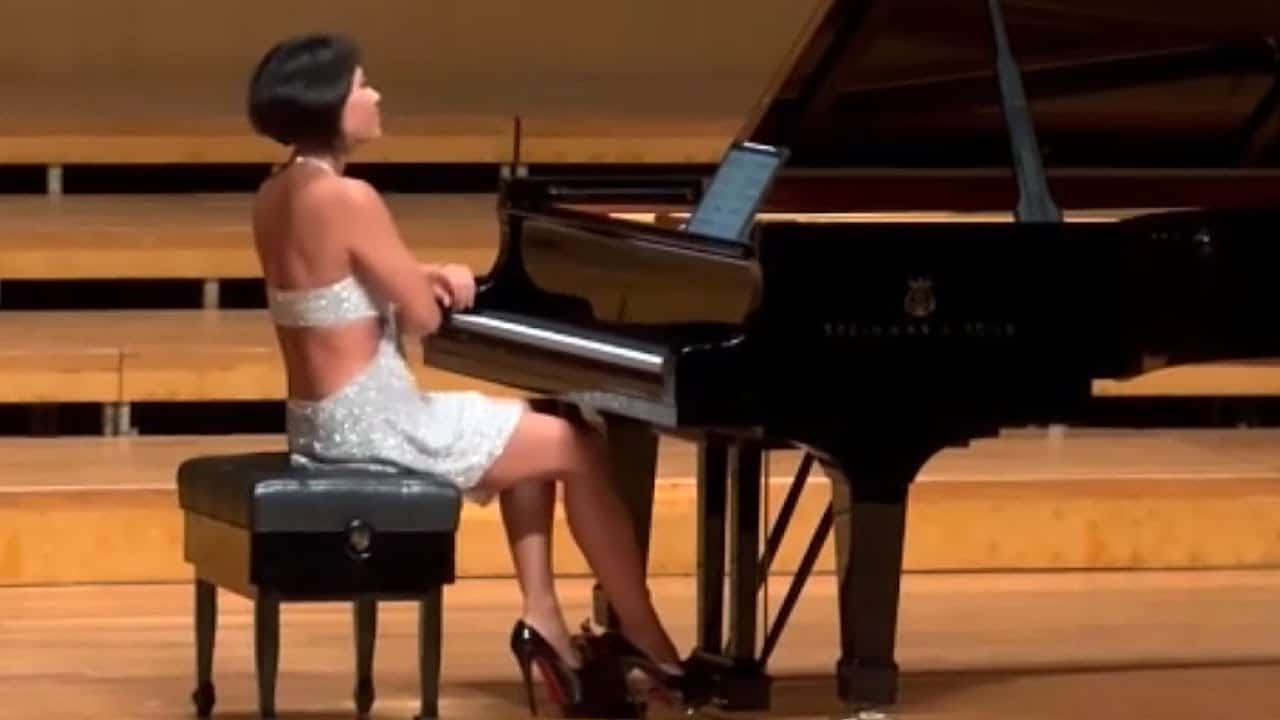It’s not just about the music: Alex Ross reviews Yuja Wang
NewsThe New Yorker critic goes to town on a Los Angeles piano recital.
… a number of people find themselves distracted. “She’d fit much better in a night club” is one of the politer complaints to be found on Wang’s Facebook page. Ironically, such concern trolling is symptomatic of the very superficiality that it purports to condemn. If you hold music to be a pure, transcendent, anti-physical medium, your attention shouldn’t be meandering to a player’s physique. Fortunately, most audiences recognize that Wang’s fashions are an honest extension of her personality. At a recent recital at Disney Hall, in Los Angeles, each of her ensembles elicited giggly applause. (She customarily changes at intermission, as opera singers do.) What would happen if a male pianist chose to highlight his body in a similar way? Some boundaries have yet to be tested.
The flamboyance ends when Wang begins to play. At the keyboard, she is precise, dynamic, purposeful, unsentimental. Although she has drawn attention for a marathon survey of Rachmaninoff’s five concertante pieces for piano and orchestra, sultry Romantic repertory isn’t her strongest suit. Some of her most memorable performances have been of thornier fare: Schoenberg’s Suite, Opus 25; Bartók’s First Piano Concerto; Messiaen’s “Turangalîla” Symphony; Ligeti’s Études; John Adams’s “Must the Devil Have All the Good Tunes?” It’s seldom noticed how she uses her star power to lead audiences outside their comfort zones. She’s a modernist in fashionista gear….
Read on here.






Comments